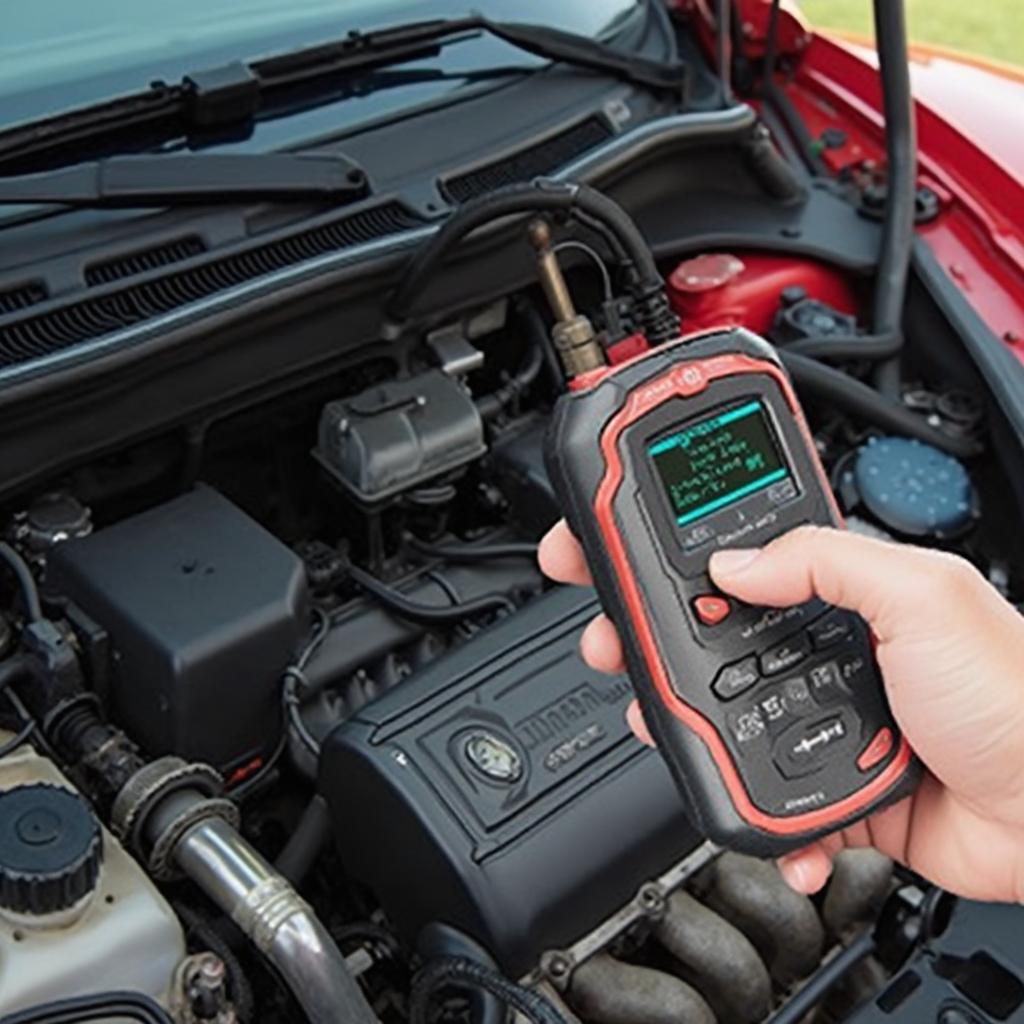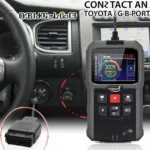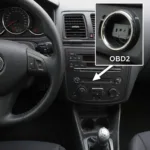The 99 Beetle crankshaft sensor is a critical component for engine performance, and when it fails, your OBD2 scanner becomes your best friend. A faulty sensor can lead to a variety of issues, from starting problems to complete engine stalls. This article will guide you through diagnosing a bad crankshaft sensor in your 99 Beetle using an OBD2 scanner, understanding the related trouble codes, and ultimately replacing the sensor if needed.
Understanding the Crankshaft Sensor’s Role
The crankshaft sensor, also known as the engine speed sensor, tells the engine control unit (ECU) the position and speed of the crankshaft. This information is vital for fuel injection, ignition timing, and various other engine functions. A malfunctioning sensor disrupts this crucial communication, leading to performance problems.
Common Symptoms of a Bad 99 Beetle Crankshaft Sensor
Several symptoms can indicate a faulty crankshaft sensor in your 99 Beetle. These include:
- Difficulty starting the engine
- Engine stalling
- Rough idling
- Reduced fuel efficiency
- Check Engine Light illuminated
If you experience any of these, it’s time to connect your OBD2 scanner.
Using Your OBD2 Scanner to Diagnose the Problem
Connecting your OBD2 scanner to your 99 Beetle is the first step in pinpointing the issue. Once connected, the scanner will retrieve any stored Diagnostic Trouble Codes (DTCs). Look for codes specifically related to the crankshaft sensor, such as:
- P0335: Crankshaft Position Sensor A Circuit Malfunction
- P0336: Crankshaft Position Sensor A Circuit Range/Performance
- P0339: Crankshaft Position Sensor Circuit Intermittent
These codes provide valuable clues about the nature of the problem.
Interpreting the OBD2 Codes
While the OBD2 codes provide a starting point, they don’t always pinpoint the exact problem. For instance, a P0335 code could indicate a wiring issue, a faulty sensor, or even a problem with the ECU. Further diagnosis is often required.
Further Diagnostic Steps
After retrieving the codes, consider these additional steps:
- Visual Inspection: Check the crankshaft sensor wiring for damage, corrosion, or loose connections.
- Sensor Testing: Using a multimeter, test the sensor’s resistance and voltage output. This requires consulting your vehicle’s repair manual for specific values.
- Signal Check: An oscilloscope can be used to analyze the crankshaft sensor’s signal pattern, providing a more detailed view of its performance.
Replacing the 99 Beetle Crankshaft Sensor
If your diagnosis points to a faulty crankshaft sensor, replacement is usually straightforward.
- Disconnect the Battery: This is crucial for safety.
- Locate the Sensor: Refer to your repair manual or the image above for the exact location.
- Disconnect the Wiring: Carefully unplug the sensor’s electrical connector.
- Remove the Sensor: Typically, a single bolt holds the sensor in place.
- Install the New Sensor: Ensure the new sensor is properly seated and the bolt is tightened to the correct torque.
- Reconnect the Wiring and Battery: Double-check all connections before starting the engine.
What Happens if I Ignore a Bad Crankshaft Sensor?
Ignoring a faulty crankshaft sensor can lead to more significant problems down the line, such as damage to the catalytic converter, or even a complete engine failure.
“A malfunctioning crankshaft sensor can have a domino effect on your engine,” says automotive expert, John Miller, ASE Master Technician. “Addressing the issue promptly can save you from costly repairs in the future.”
Conclusion
A faulty 99 beetle crankshaft sensor obd2 can be easily diagnosed and resolved using an OBD2 scanner and a bit of know-how. By understanding the symptoms, utilizing your scanner effectively, and following the proper diagnostic steps, you can keep your Beetle running smoothly. Don’t delay repairs as ignoring the issue can lead to more serious and expensive problems.
FAQ
- How much does a crankshaft sensor cost for a 99 Beetle? Prices typically range from $50 to $150.
- Can I drive my 99 Beetle with a bad crankshaft sensor? While possible for short distances, it’s highly discouraged as it can cause further damage.
- How long does it take to replace a crankshaft sensor? The replacement process usually takes less than an hour.
- What tools do I need to replace a crankshaft sensor? Basic hand tools like a socket wrench and a screwdriver are usually sufficient.
- Where is the crankshaft sensor located on a 99 Beetle? It’s typically located near the crankshaft pulley, at the front of the engine.
- What other sensors can cause similar problems? The camshaft sensor and the mass airflow sensor can also cause similar symptoms.
- How often should I replace my crankshaft sensor? It’s typically not a scheduled maintenance item and is replaced only when faulty.
“Regularly scanning your vehicle with an OBD2 scanner can help detect potential issues early on,” advises Maria Sanchez, Lead Automotive Diagnostician. “Preventive maintenance is always better than reactive repairs.”
For further assistance, contact us via WhatsApp: +1(641)206-8880, Email: [email protected] or visit our workshop at 789 Elm Street, San Francisco, CA 94102, USA. We have a 24/7 customer support team ready to assist you. You may also be interested in our articles on other common VW Beetle issues and OBD2 code interpretations.


